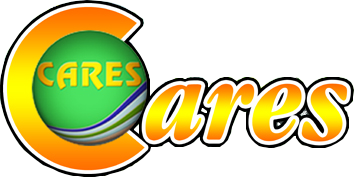Implementation time: April 1, 2021-March 31, 2022
Funding agency: French Agency for Development (AFD) and European Union (EU)
Project leader: Dr. Pham Van Hoi (CARES)

The agricultural sector of Southeast Asian countries is at a crossroads between intensive agricultural models relying heavily on chemical inputs and capital, and innovative agroecological systems, less dependent on agrochemical inputs and encompassing a wide range of healthier, environmentally and socially sustainable practices (e.g. conservation agriculture, agroforestry and crop diversification, landscape redesign, sustainable rice intensification, integrated crop-livestock and tree systems, organic farming). In this context, food safety becomes a critical issue, which presents increasing constraints, but also opens up opportunities for millions of small-scale farmers and businesses to respond to market demands through chain-wide approaches to promoting agroecological practices.
The overall objective of the programme is to make food and agricultural systems in Southeast Asia more sustainable, safer and inclusive, through harnessing the potential of Agroecology to transform them. This will be achieved through synergizing initiatives contributing to Agroecological and Safe food System Transitions (ASSET) from local to regional levels.
2. Project objectives
- The overall objective is to make food and agricultural systems in Southeast Asia more sustainable, safer and inclusive, through harnessing the potential of Agroecology to transform them. This will be achieved through synergizing initiatives contributing to Agroecological and Safe food System Transitions (ASSET) from local to regional levels.
- The primary target countries of the Action: Cambodia, Myanmar, Vietnam and Laos.
3. The specific objectives
- Strengthen and enlarge the ALiSEA learning alliance to enable it to act as a formalized and open coalition by a shared vision of ASSET pathways;
- Transform the ALiSEA platform into a knowledge hub that synergizes stakeholders’ engagement and initiatives to achieve ASSET at the regional level;
- Conduct a multimedia communication and capacity development towards a broad targeted audience (including consumers and citizens) to promote ASSET at local, national and regional levels;
- Co-design and support territorial approaches to innovation, including technical, organizational and institutional changes, and derive lessons from these interventions by assessing performance and impacts, and sharing experiences for a large-scale impact;
- Design a common broad-based methodological framework to assess performances, impacts and enabling conditions of innovations and pathways to the ASSET from the local to the global levels;
- Foster, feed with lessons learned and strengthen existing policy dialogue on agriculture, food, health and trade at local, national and regional levels, to better integrate sectorial issues and support ASSET.
4. The expected outcomes of the project
- The ALiSEA network is strengthened and recognized at regional level.
- ALiSEA Knowledge Hub is a major resource to synergize stakeholders’ engagement and initiatives to achieve ASSET up to the regional level.
- A multimedia communication and capacity building strategy reaches a broad audience, including consumers and more largely citizens.
- Innovation processes – including technical, organizational and institutional changes – are strengthened at territorial level, notably through broader engagement and co-design with a variety of stakeholders accounting for youth and gender considerations, thereby supporting the sustainability and biodiversity of agroecosystems, livelihoods, health and nutritional status of vulnerable populations.
- A common broad-based methodological framework for assessing performances, impacts and enabling conditions of innovations and pathways to the ASSET from local to global levels, and evidence on the impact pathways to the ASSET on climate, environment, health and social issues allow to inform local authorities, policy makers, farmers, privates sectors, and citizens.
- Existing policy dialogue on agriculture, food and trade at national and regional levels (notably ASEAN level) is fostered and strengthened to better integrate sectorial issues and support ASSET.
5. Operational components of the project
Component 1 – Impact-oriented stakeholder engagement into agroecology and safe food system transitions
- Strengthening the Agroecology Learning Alliance in South-East Asia (ALiSEA) through networking and sharing a common vision of the ASSET
- Transforming ALiSEA into a knowledge hub
- Promoting ASSET transitions through capacity development, communication and visibility actions
Component 2 – Scaling up agroecological and safe food innovations from local to regional levels
- Knowledge production and support to innovations
- Methodological framework for assessing performances and impacts of innovations and transitions
- Evidence-based policy dialogue and advocacy


 Tiếng Việt
Tiếng Việt